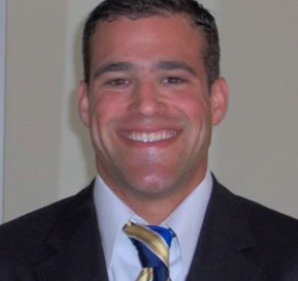
Bradley Goldstein, DO, CAQSM, MPH, MS, FACOFP
Attending Physician, Orlando, FL
Treatments for overweight and obesity have undergone a remarkable transformation over the past several years. Recognition of the stigma surrounding treatment of those suffering with overweight and obesity has helped us to embrace novel treatment approaches. As adoption of pharmacologic approaches to assist patients in weight loss has exploded, I believe we can, as osteopathic physicians, bring our unique skillset to the table in helping these patients as well.
I have found that Osteopathic Manipulative Treatment (OMT) can be an effective part of a patient’s weight loss journey, and this post highlights my thoughts about this emerging topic. I believe osteopathic family physicians are a perfect group of physicians to help patients struggling with weight loss. They can do this through their approaches of open-ended questioning, reduction of risk with effective treatment of comorbidities, finding and exploring social determinants, osteopathic examinations, and, yes, OMT.
I’d like to highlight and bring a voice to one of my more recent firsthand experiences. I had a patient who was a middle-aged male going through a challenging life transition. He shared with me that he wanted to lose weight “for himself” and that he wanted to feel more comfortable in his clothes and “get more respect.” He said he felt sidelined in his own body. I prescribed this patient a weight-loss medication and started performing OMT after a shared extensive discussion of his goals.
I initially expected OMT to be a way to open lymphatics, promote fascial movement, and manage effects of possible sarcopenia and other somatic dysfunctions. However, a fantastic bonus and complement was an increased patient-reported sense of accountability and ownership in his weight loss journey. He reported that OMT helped him feel not only more connected to his body, but also to his emotions, his spirituality, and his solidarity. As he was losing weight, the outcome measure for him became way more than a number on a scale. It encompassed confidence, motivation, accountability, pride, and the quality of his relationships.
As is the case with many patients, this patient’s weight loss journey happened to coincide with another challenging life event. I think we can agree that rarely does a weight loss experience occur in isolation without other life challenges. OMT helped to put his weight loss journey in a proper context of his own life in many ways.
I thought to myself, I wish more patients could have access to and understand the value that OMT can bring as patients navigate their weight loss journeys. It can be life-altering, and it can help to augment and boost the effects of a weight loss medication or other treatment.





